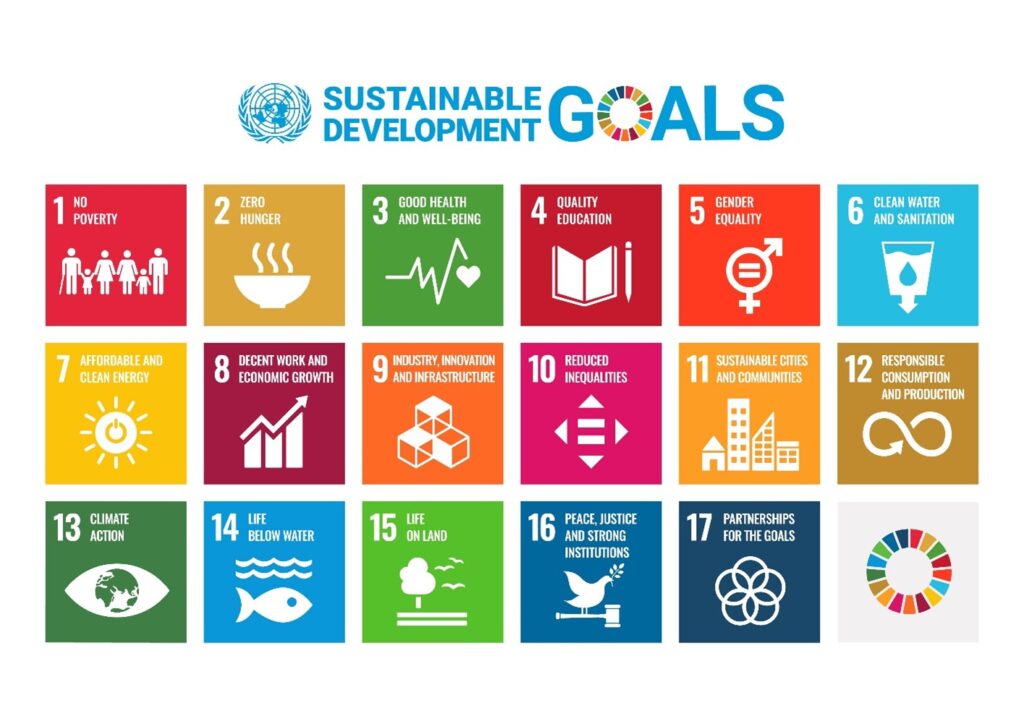Why are employers looking to drive sustainability?
There’s a common belief that sustainability has simply become a buzzword in the last few years. In fact, this term has been out there for at least three decades, but the focus got lost and actions delayed.
Sadly, as we realise the good health of our planet is at more risk than ever before, we all need to take responsibility now for implementing ways to be sustainable.
Being a responsible employer goes far beyond profit. The way employers do business is as important as what they do.
Global initiatives, reporting frameworks, regulatory bodies and ethical drivers are all placing requirements on companies to be accountable to employees, shareholders, customers, countries, and communities, globally and at home. These requirements focus our attention on our environmental impact and actions we can take to reduce our effects.
A robust sustainability strategy is essential for all organisations looking to demonstrate their sustainable commitments in order to protect their reputation, secure customer loyalty, appeal to investors, and attract and retain top talent.
Throughout this article we explore:
- What’s the importance of sustainability in the workplace?
- How does workplace sustainability help employees and employers?
- Why engage employees in sustainability?
- How can you use your recognition programme to drive sustainable behaviours?
- Five ways to encourage sustainability in the workplace
- How to create a sustainable employee recognition programme
The importance of sustainability in the workplace
When you’re systematic and determined to find ways to make your workplace sustainable, sustainability becomes part of your company culture. The entire workplace will get motivated to achieve positive results.
Triple bottom line goal…
The aim is to achieve the triple win:
- People
- Planet
- Profit
How does workplace sustainability help employees and employers?
1. Attracts talent
According to the ONS, more than eight in ten (86.5%) adults in Great Britain report having made at least some changes to their lifestyle to help tackle environmental issues. We know employees and consumers are highly aware of the everyday environmental impact on the world around them and are looking favourably upon companies that are doing their part in trying to reduce this impact. A 2022 report by PwC found that 65% of people across China, Germany, India, the UK, and the US want to work for an organisation with a strong social conscience.
The drive towards working for a sustainable employer is leading to wider company changes, with more than a third (36%) of HR professionals building their hiring strategies around their organisations’ social and environmental stance, according to the same report.
2. Enriches company culture
Promoting sustainability among employees encourages more environmentally-conscious decisions across the workforce. A sustainability mindset will begin to filter through all decision-making. Whether at work or at home, employees will think about ways to reduce waste and energy.
3. Fosters loyalty and retention
Environmentally-conscious organisations enjoy greater levels of employee loyalty compared to their counterparts. A study conducted by recruitment agency, Michael Page, revealed that companies with sustainability initiatives had more engaged and loyal employees.
“Being green builds pride, boosting retention of top talent.”
Bridget Jackson, Corporate Sustainability Director at PwC
4. Increases business opportunities and sales
It’s not only employees who are attracted to sustainable organisations. As organisations look to improve their own sustainability practices, they’re more likely to want to do business with others who share the same values, influencing contract and partnership decisions.
Additionally, 71% of consumers say they’re willing to spend more with a brand that has sustainable commitments. (IBM Institute for Business)
Why engage employees in sustainability?
Employees are the beating heart of your organisation and engaging them in your sustainability strategies will undoubtedly have an impact on your overall success.
Among employed adults surveyed by Deloitte Consumer Centre in March 2023 for its global ‘State of the Consumer’ survey, 69% said they want their companies to invest in sustainability efforts, including reducing carbon, using renewable energy, and decreasing waste.
And according to respondents in Deloitte’s ConsumerSignals survey, about a quarter have considered switching jobs to work for a more sustainable company.
This sentiment is mirrored in a Deloitte survey of more than 2,000 C-suite leaders, who claimed employee morale, wellbeing, employee recruitment, and retention are among the greatest benefits of their sustainability efforts so far.
Much like any initiative, the key to engagement is in education, communication, motivation, and measurement – each element should be carefully considered in order to engage employees more effectively in your organisation’s sustainability plan.
How can you use your recognition programme to drive sustainable behaviours?
Sustainability at work is no longer a tick box exercise. Instead, sustainability is a strategic focus with long-term goals. As drivers of value and behaviour, recognition programmes are a great, consistent way to incentivise and reward employees for supporting and driving forward sustainability strategies.
For example, here at BI WORLDWIDE EMEA, we’ve recently updated our sustainability company value:
Banner to be added
BI WORLDWIDE Associates can receive reward and recognition through our programme, Bravo, for behaviours such as ‘takes personal responsibility for minimising environmental impact through responsible practices, i.e. reducing waste, optimising energy efficiency, and / or using sustainable items’.
This is just one example. Another idea could be to structure a specific incentive programme around your organisation’s strategic environmental goals, such as carbon reduction, energy saving, and recycling. Such a programme allows you to communicate sustainable goals, track simple targets (e.g. reduced energy costs) and reward progress and achievements.
At BI WORLDWIDE EMEA, we also partner with a corporate volunteering company whose mission is to make sustainability more accessible. It offers a blend of local, remote, and fully flexible missions, such as lowering waste, reducing purchases of single use plastics, wellbeing walk challenges, and many more. Employees earn points as individuals and teams, which are then converted into trees planted.
For a comprehensive commitment to sustainability, corporate and social responsibility, companies can follow and the United Nations’ 17 global Sustainable Development Goals.

Incorporating sustainability into an employer’s mission and values helps employees buy into the goals and understand how their behaviour will directly impact the company success.
Research by the Intergovernmental Panel on Climate Change (IPCC), which is part of the UN, published in December 2018, found that 66% of employees would support a bonus incentive scheme to help cut carbon emissions. 57% feel that their employer is not doing enough to involve them in reducing the business’ carbon footprint. And less than half (46%) of organisations are inviting their employees to put forward their own sustainable ideas.
Source: How can employers use reward and benefits to address sustainability? (employeebenefits.co.uk).
Five ways to encourage sustainability in the workplace:
1. Encourage contribution from employees in sustainability strategy decision-making. This approach helps get buy-in from everyone and increases understanding of the positive impact their actions will have on the environment.
2. Encourage awareness and sensitivity from employees to their usage of energy – lighting, water, paper and other resources.
3. Encourage new ideas and initiatives. Set up easy ways to share ideas such as a dedicated inbox that employees can send their ideas to and feel they’ll be reviewed and assessed without feeling the need to personally present which could stifle input.
4. Encourage creativity to work around traditional solutions and meet corporate goals in new ways.
5. Encourage celebration. The sustainability challenge can often feel unsurmountable. Take the time to recognise and celebrate the steps on the journey.
How to create a sustainable employee recognition programme
As a key driver of your workplace culture and employee value proposition, your reward and recognition programme provides a perfect place to activate and socialise your sustainability strategy. Here are six ways we’ve identified you can leverage your recognition and reward strategy to support your sustainability goals:
1. Recognise and reward sustainable choices.
In organisations that are creating value through sustainability, 60% of employees say that sustainability is a part of the corporate culture. Incentivise change and build a sustainable culture within your organisation by recognising and rewarding employees making sustainable choices. Whether it’s cycle/walk to work schemes, car share networks or implementing local sustainability initiatives, encourage and reinforce positive behaviours by introducing sustainability focused values and behaviours into your reward and recognition programmes.
2. Let employees donate their rewards to causes
With cost of living pinching on employees’ disposable income, their own ability to donate and support causes of meaning to them may be limited. Allow them to use their recognition rewards to close the gap between their desires and abilities. In the past five years we’ve seen a year-on-year increase in the value of charitable donations through our EMEA marketplace and, in 2022 alone, EMEA donations increased by over 200%, demonstrating a trend towards more altruistic redemption behaviour.
3. Digitise your selection
Whilst most reward and recognition schemes have gone digital, some reward options and processes may still feature paper or paper equivalents. Review voucher providers and push for digital solutions.
4. Create sustainable catalogues
For many, there’s a desire to become more sustainable, but there’s also a knowledge gap as to how to make more sustainable choices. Nudge the journey by curating sustainable reward collections that allow employees to choose rewards with more sustainable credentials. Underlining our sustainability commitment, a ‘Living Green’ icon has now been added to thousands of items in BI WORLDWIDE’s Rewards Marketplace in EMEA with eco-conscious participants now able to use a filter functionality to easily find greener options.
Products considered to be contributing to sustainability will be based on green criteria such as:
- Utilising recycled materials
- Minimising plastic usage
- Eco-designed items reducing environmental impact
- Recyclable packaging
- Ethical sources, fair trade products
We have also partnered with Dots.eco to offer our Rewards Marketplace participants the opportunity to redeem points against a number of environment causes, from planting trees to cleaning up ocean plastic, saving sea turtle hatchlings, protecting wildlife habitat, restoring coral reef and offsetting carbon. This important partnership demonstrates how BI WORLDWIDE EMEA has responded to meet client requests to offer sustainability-themed rewards. It also reinforces our commitment to supporting the health of our natural world and safeguarding our planet for future generations.
5. Think shipping
It’s all well and good having a sustainable catalogue, but if the fulfilment solution means rewards are crossing borders you may be diluting the result. Seek to leverage a reward provider that can offer local coverage to your employees to minimise shipping environmental impact. Better still, seek a provider that’s also asking sustainable practices of their supply chain, magnifying the impact from end-to-end.
6. Share successes
Once implemented, make it a priority to spotlight the success stories. Positive case studies are a great way to help bring sustainability initiatives to life and inspire others.
Promote sustainability in your organisation with the help of BI WORLDWIDE
Focusing on sustainability is no longer a ‘nice to have’ but a business imperative to improve your employee value proposition, workplace culture, and business performance.
Establish what will make your company more sustainable, identify changes that can make a difference and how these changes will be measured, then implement changes that align with company values and goals.
What can you do today?
At BI WORLDWIDE, we are continuously reviewing research and programme insights to ensure our approach to channel programme design is effective at motivating behaviour and measurable results for our clients.
Contact us today to discuss your channel challenges and learn how, via our channel engagement solution, we can help design and deliver a programme that drives results.
